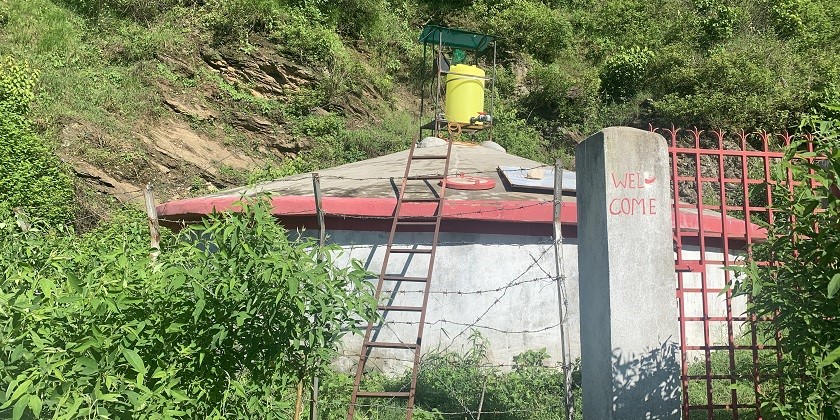Department Sanitation, Water and Solid Waste for Development
Optimizing Chlorination Arrangements for Piped Water Supplies in Rural Nepal

Ensuring safe drinking water remains a challenge in rural Nepal, where faecal contamination poses serious health risks. In collaboration with Helvetas Nepal, this study builds on previous research conducted under the REACH program, which demonstrated that system-level chlorination in piped water supply schemes can effectively improve water quality at both distribution points and households. However, operational inefficiencies, inconsistent performance, and financial constraints have highlighted the need for further optimization of chlorination arrangements.
As part of SANDEC’s WABES (Water, Behavior Change, and Environmental Sanitation) program, the Water Supply and Treatment (WS+T) Group collaborates with Helvetas Nepal to assess different chlorination technologies (passive erosion chlorinators, passive or semi-automated injection of chlorine, and manual chlorination) across varying levels of decentralization. The study evaluates treatment effectiveness, cost efficiency, ease of operation and maintenance, and user satisfaction to better understand the trade-offs between different chlorination arrangements. The aim of the study is to generate practical guidance for selecting the most suitable chlorination approach for the specific context, particularly in Nepal’s rural hilly regions, and to contribute to sustainable and scalable water disinfection strategies for safe drinking water in remote communities.
Project timeline: 2023 - 2026
Resources
-
WABES: Evaluation of Different Chlorination Mechanisms and Arrangements. September December 2024 Internship - Rachel Boyer
-
Draft Roughing Sand Filter (RSF) Evaluation. Checklist and Sanitary Inspection Form
